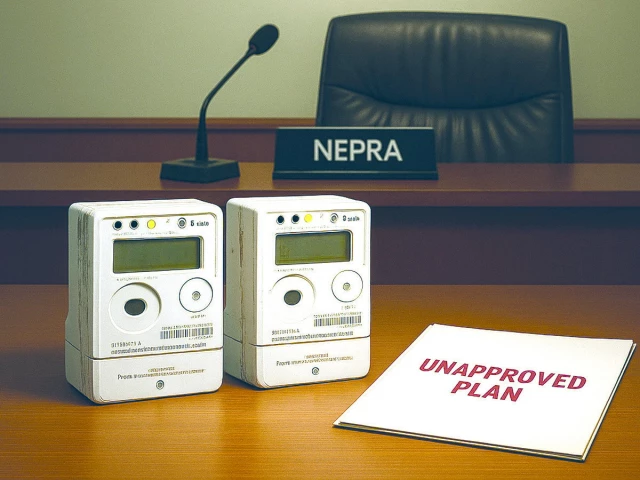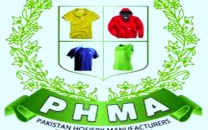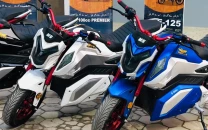4m AMI meters installed without nod
NEPRA questions power firms over spending billions of rupees on AMI units

The National Electric Power Regulatory Authority (Nepra) has grilled power distribution companies (DISCOs) about the installation of four million Advanced Metering Infrastructure (AMI) units without approval of the regulator.
The installation of AMI meters requires the approval of Nepra under the multibillion-rupee investment programme. However, the electricity companies have started installing such advanced system without seeking the nod of the regulator.
Nepra asked the companies to come up with a proper investment plan for approval. In their response, DISCOs told the regulator that they had received directives from the Ministry of Energy (Power Division), which was the reason why they started installing the AMI meters.
The cost of a static meter is Rs5,000 whereas the AMI meter costs Rs20,000. Keeping that in view, Nepra noted, the distribution companies would need to draft a multibillion-rupee investment plan.
The regulator observed that the companies would also require a grid for AMI installation and a huge investment would need to be injected for grid establishment.
Nepra made the observations at a public hearing on Wednesday while considering the multi-year tariff petitions filed by the Quetta Electric Supply Company (Qesco) for tariff determination for power distribution and supply for financial year 2025-26 to FY 2029-30.
It was noted that the company's bill recoveries had jumped up to 60% from 30% after shifting agricultural tube wells to solar energy in Balochistan. Company officials said that they were now focusing on domestic and other consumers to improve recoveries and control losses.
The company was endeavouring to recover Rs322 million on account of deduction charges, but it could collect only Rs32 million, which constituted 10% of the total. They pointed out that consumers were not willing to pay while some of them filed cases in court.
The regulator highlighted that some applications for electricity connections had been pending for the last six months, responding to which company officials assured Nepra that the requests would be addressed next month.
Speaking at the hearing, the chief executive officer of Hyderabad Electric Supply Company (Hesco) emphasised that Nepra should introduce fixed network usage charges based on the sanctioned load or the export capacity.
In a second option, the CEO called for transitioning to a gross metering framework to avoid cross-subsidies. In that mechanism, he said, there should be different rates for DISCOs and solar net metering rather than the exchange of electricity units.
"We will charge our prices while consumers under the solar net metering system will charge their own price," he stressed, adding that there would be no exchange of units.
Nepra raised questions about the pending electricity connections for the last two years. It assessed that Hesco had a higher rate of fatal and non-fatal accidents, but company officials argued that such incidents occurred due to the negligence of the general public. Consequently, the regulator sought internal inquiry reports pertaining to the incidents.
Nepra mentioned that there were 2,188 defective meters, however, the company did not install new meters, adding that the company had also been accused of overbilling. It sought a compliance report in that regard.
The regulator noted that the distribution firm had billed more than Rs7 billion in deduction charges but the recovery was only 1.8%. Nepra questioned why the recovery rate was very low and how the company failed to recover previous dues on account of deduction charges.
Company officials replied that they had started work from October, arguing that the low recovery was because of disputes with consumers, who sometimes moved court.
When Nepra pointed out that 75 net metering applications had been pending, the CEO underscored the need for switching to gross metering to prevent losses.






















COMMENTS (2)
Comments are moderated and generally will be posted if they are on-topic and not abusive.
For more information, please see our Comments FAQ